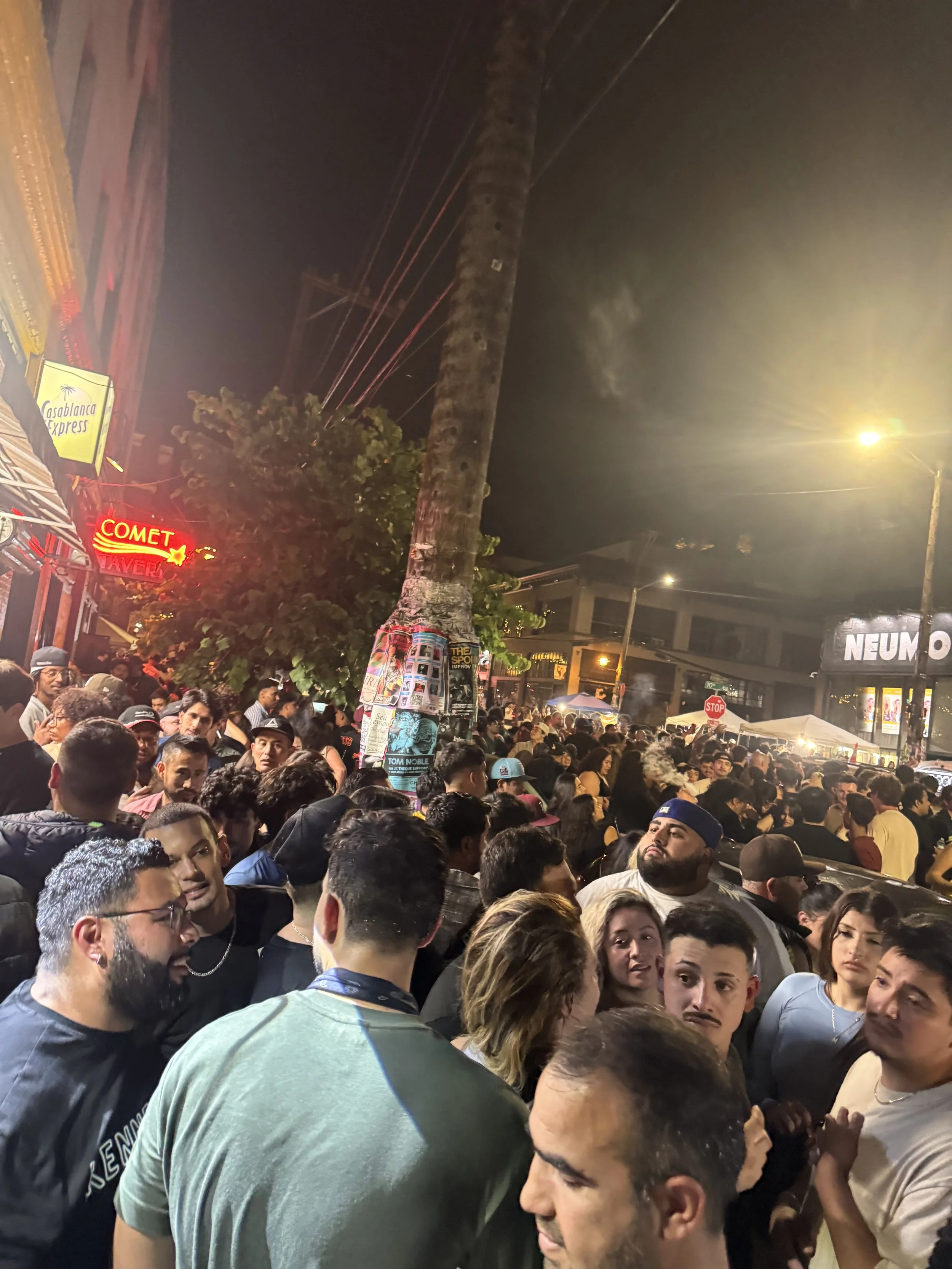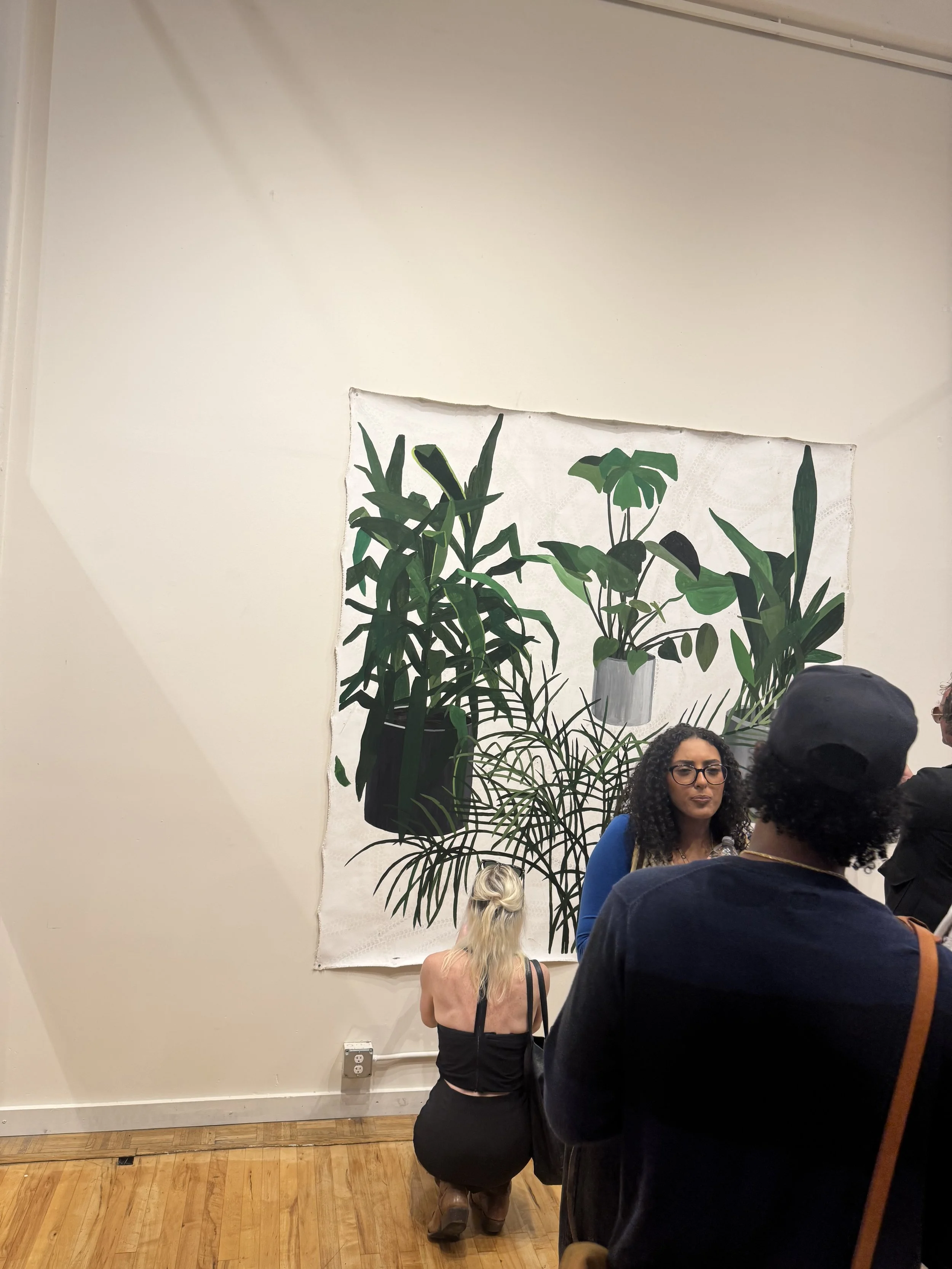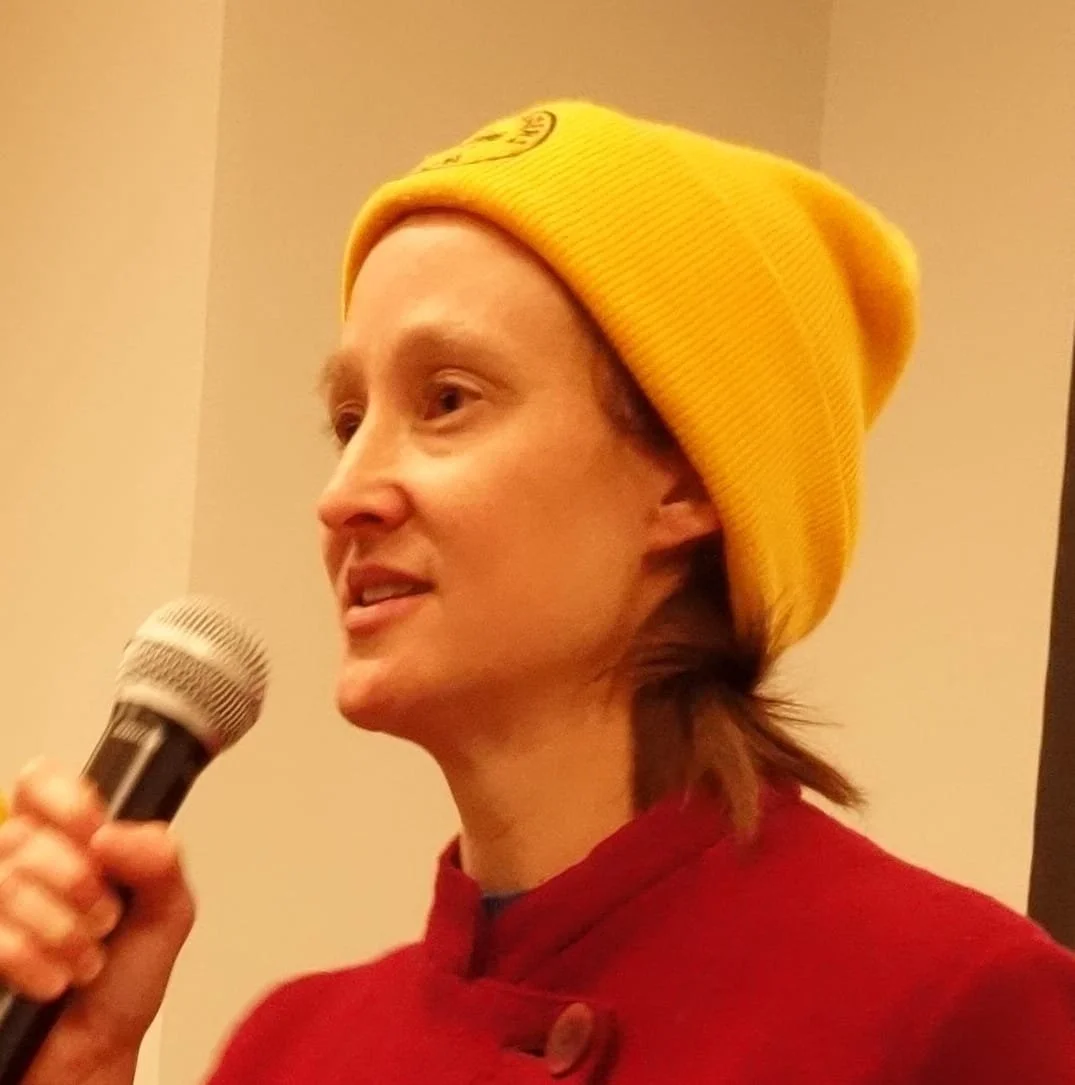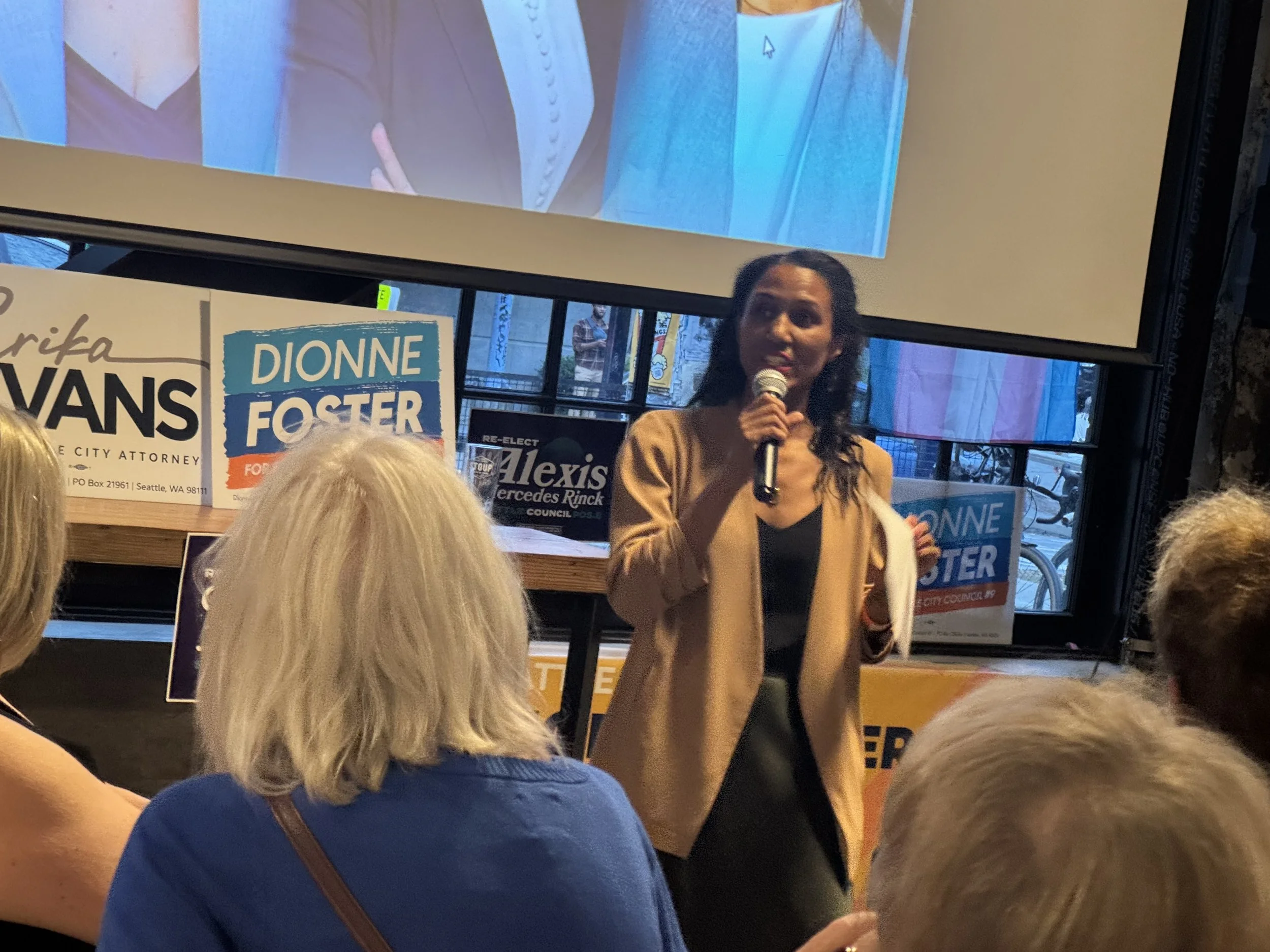I’m All Lost In, #95: America stays home; Alex Dimitrov goes out; Seattle’s primary election results.
I’m All Lost In…
the 3 things I’m obsessing about THIS week.
#95
Two things I want to note before I get into this week’s list. First, this off-handed expression I appreciate you. I know it’s not a new phrase. But it’s now ubiquitous as a stand-in for “thank you” or “goodbye.” Or else it’s used to acknowledge your friend’s point during a conversation. Or it can be a casual call out by a service worker after ringing someone up. I noticed the non-stop usage of this vocal cliché during my recent trip to NYC. Like on Saturday night in trendy Brooklyn when a stocky, young finance bro wearing (probably) a Nirvana t-shirt said it. “I appreciate you,” he told the floor manager at L’industrie Pizza who was totally cosplaying the Bear as she re-stocked the TP
I’ll admit: It’s not a terrible refuge and rejoinder to Trump era discourse. But everyone does dost protest too much. Weird times.
Second, a midyear resolution: Wherever and whenever someplace offers free water—in lobbies, cafés, bars, restaurants, rec centers, or the gym—I’m going to drink it. As much as I can.
Onto this week’s obsessions:
1) According to the Data, America is Becoming a Nation of Homebodies
American land use planning has de-prioritized walkable communities; those neighborhoods where you don’t need a car to go out and buy dish soap, go out for a drink, get to the park, access public transit, or peruse a local shop.
Noting that “less than 2 percent of America’s metropolitan areas consist of spaces where people can easily move their bodies and make or maintain social connections,” the Washington Post published a dispiriting essay this week by urbanist Diana Lind laying out the deleterious results:
Americans now spend an average of 99 more minutes at home each day than they did in 2003, while this generation of 15- to 24-year-olds spends 124 more minutes at home than their counterparts two decades ago. Meanwhile, just 30 percent of Americans spent time socializing and communicating in person on an average day, down from 38 percent in 2014, according to the American Time Use Survey.
In addition to bad zoning, Lind’s essay cited a few other factors for this “great retreat” indoors that’s contributing to our fraying social bonds and poor health. She points to: Screen time and online life; out-of-reach housing costs in the exclusive neighborhoods where walk scores are high; online shopping; and the post-pandemic shuttering of “third places,” “from churches to movie theaters.” (This “third place” factor seems like a bit of circular logic to me. Maybe movie theaters are closing because people aren’t going out in the, da dum dum, first place.)
There is one notable quirk in the data here: While model urban neighborhoods are increasingly unaffordable (leading to a boom in the more affordable burbs and exurbs), Lind simultaneously notes that “more educated and affluent Americans spend the most time at home.” Both things can be true. But it certainly lets us know, sorry MAGA, that urbanites aren’t America’s only elitists living in bubbles.
Judging from this week in Seattle, we city slickers with our commercial hubs, human-scale zoning, and public transit are definitely defying the norm and going out. Crowds filling up galleries during Thursday night Art Walk in Pioneer Square. Mobbed midnights on Capitol Hill. Roomfuls of revelers on Primary Election night. South Lake Union buzzing with pedestrians during workweek mornings, lunchtime, and happy hour. I was out and about in all of these places this week; I got some art on Thursday night at CoCA on 3rd Ave. S between Yesler and Washington (a spur of the moment birthday present from XDX.)
From clubs to parks, from coffeehouses to light rail trains, from shops to grocery stores: it’s all bodies. This was certainly true at the gyro counter at 1st and Washington Thursday night where they happily ceded their tables to the crowds; Med Mix kept the kitchen open late to meet the-line-out-the-door demand as XDX and I, and everyone else orbiting the kitchen, clutched their order numbers and settled in to have playful or serious late-night conversations over falafel, hummus, and lentil soup .
And, unlike the Seattle of 10 to 20 years ago, it’s not all-white crowds.
After Midnight, Capitol Hill, Seattle, Pike St., 8/2/25
First Thursday Art Walk, Pioneer Square, Seattle, 8/7/25
First Thursday Art Walk, Pioneer Square, Seattle, 8/7/25
I’ll say this about my supposedly homogeneous (but actually diverse) urban bubble; I refuse to be lectured about bubble living by people who are building a wall and gleefully set on deporting immigrants.
2) Ecstasy by Alex Dimitrov
Another urbanist who’s defying the data and going out: gay NYC poet Alex Dimitrov.
Dimitrov gets a lot of attention; I read his 2021 book Love and Other Poems a few years ago, and I’m not exactly sure what the big deal is. If you ask me, he’s too on the nose with his Frank O’Hara cadences.
But even if he isn’t writing deep poems, Dimitrov’s clipped verse is addictive, exciting, and a joy to read. You can drink it down like a glass of lemonade—or a vodka and lemonade. Dimitrov is a bon vivant. As the cover photo here—a still from Andy Warhol's 1964 movie Blow Job—makes clear, this new collection drops any pretense of being erudite. That’s not to say it’s not smart. Or written by a dedicated smart-aleck: “The last day I was a virgin/I got a speeding ticket.” But chatty Dimitrov is more dedicated to embracing his seven-deadly-sins persona with a manifesto of human sexual agency than with being the next Amanda Gorman.
I was looking to pour some easy yet legit poetry into my head this week and Dimitrov’s short new book hit the spot. I will say, following his example (reading while drinking vodka), I found myself drawn to a 10-poem sequence toward the end of the collection (“Baby,” “Baby, No,” “Ketamine,” “Highway,” “Wednesday,” “Thursday,” “Friday,” “Saturday,” “Sunday,” “Sunset”) that elevates the conversation with sharper lines of inquiry and angst ….
I stared at my phone and I hid in the hallway./I really thought God would be somebody else. —from “Baby, No”
and with better poetry:
I went to Switzerland that winter./The lake was full of birds./The women carried flowers./And God forgot the world./
I know, I know/that even the highest branches/
(even the highest branches will be touched)./
And men are maps of evening./And weather’s all we have./
And only the sky./ —from “Highway”
©2025, Ecstasy by Alex Dimitrov
3) A Progressive Reset on Election Night
I did not see this coming. Seattle’s progressives won big in Tuesday night’s top-two primary.
I thought incumbent Mayor Bruce Harrell (a banal mix of I’m-from-here-you’re-not NIMBYism and sports-metaphor governance) was perfectly repping trite white liberal Seattle. Even more perfect for that privileged constituency, Harrell is Black.
I also thought the Mamdani comparisons to Harrell’s progressive challenger, 43-year-old Katie Wilson, were facile. For starters, Wilson is not proposing socialized, public grocery stores. More important, she doesn’t have Mamdani’s easy charisma.
But bam, this week’s numbers do not lie.
What Wilson is…. a thoughtful policy nerd. A dork even. Emerging from years of earnest pro-transit activism as longtime head of the Transit Riders Union and writing some well-researched pro-housing journalism (some for PubliCola), Wilson bested macho charmer Harrell at the polls. After the first night of returns, traditionally the most conservative votes, Wilson was actually winning 46.2 % to 44.8 %. Stunning. By week’s end Wilson was winning by an astonishing 50.1% to 41.7%. (You can listen to ECB analyze the results here.)
Is a seismic change afoot for November? My hope is that Wilson wins and summarily reboots City Hall with a new deep state staffed by the younger generation she represents.
People are quickly making cautionary comparisons to Seattle’s last anti-establishment winner, one-term mayoral shit show, Mike McGinn. That doesn’t track. McGinn was a brash, egotistical dude. Wilson is humble and collaborative.
Mayoral candidate Katie Wilson of (per Socialist Kshama Sawant’s derision) “Liberal Activist Layer” fame.
The pro-Harrell establishment is confident they can take Wilson out in November by likening her to former city council firebrand, Socialist Kshama Sawant. It could work, but in reality Wilson is a classic reformist liberal not an ideologue. As I posted on Wednesday morning:
Harrell may want to tie Wilson to Sawant (conservatives' only tiresome play these days), but back in 2019, Sawant's camp itself ID'd Wilson as a dreaded "liberal" who was undermining Sawant's Socialist agenda.
An ultimate Wilson win would be a much-needed rebuke of 2021’s conservative, law-and-order backlash that gave us Harrell and reckless conservative council president Sara Nelson.
More good news: Nelson is losing too. To a progressive policy brain, the totally charismatic Dionne Foster. Foster, the former ED of the Progressive Alliance of Washington and before that, a young policy staffer at city hall, is beating Nelson 57.89 to 35.77.
Dionne Foster speaks to a crowd of raucous supporters on primary election night, Stoup Brewing, Capitol Hill, 8/5/25
I’ll conclude this week’s installment as I did last week—with a must-watch recommendation. And like last week’s 1949 B-movie, this one is also a YouTube find.
In America’s wonderfully woke heyday between 1969 and 1974 when the 1970s were still the 1960s, ABC aired a prime time show called Room 222, a seriously multiracial high school drama. It doubled as a syllabus of nuanced PSAs about topical taboo subjects such as sex, gender, race, the media, the generation gap, pollution, and most of all, power.
I know I know: the baby boomers didn’t get it. Particularly those naive liberals writing sitcoms. But check this show out and check your conventional Millennial wisdom at the door. This is sophisticated, no-easy-answers stuff. (My favorite episode ever features an examination of corporate lobbyists, the environmental crisis, and compromised newsrooms from the POV of brainy goodie goodie A-student Richie and his cool angry sidekick, Jason.)
Richie (Howard Rice) and Jason (Heshimu Cumbuka) take on the Man in Season 1, Episode 20, January 1970.
This week, I watched two more excellent episodes. One was a feminist primer from 1971 with a guest star turn by pre-American Graffiti Cindy Williams (warning, the raw sexism on display from the high school boys is hard to take.) The other was a show stopper from 1970 starring pre-American Graffiti Richard Dreyfuss. He plays an angry, mouthy high school senior who, thanks to Room 222’s regular squad of groovy young faculty, gets to give the student speech at graduation. As a disgruntled late bloomer, Dreyfuss’ pent up character Stan gives a fiery anti-establishment rant about how high school doesn't teach kids to think. Some bristling older parents try to shut him down, but the always- reasonable and gently sardonic principal Kaufman (Michael Constantine) won’t let them. He urges Dreyfuss to continue.







